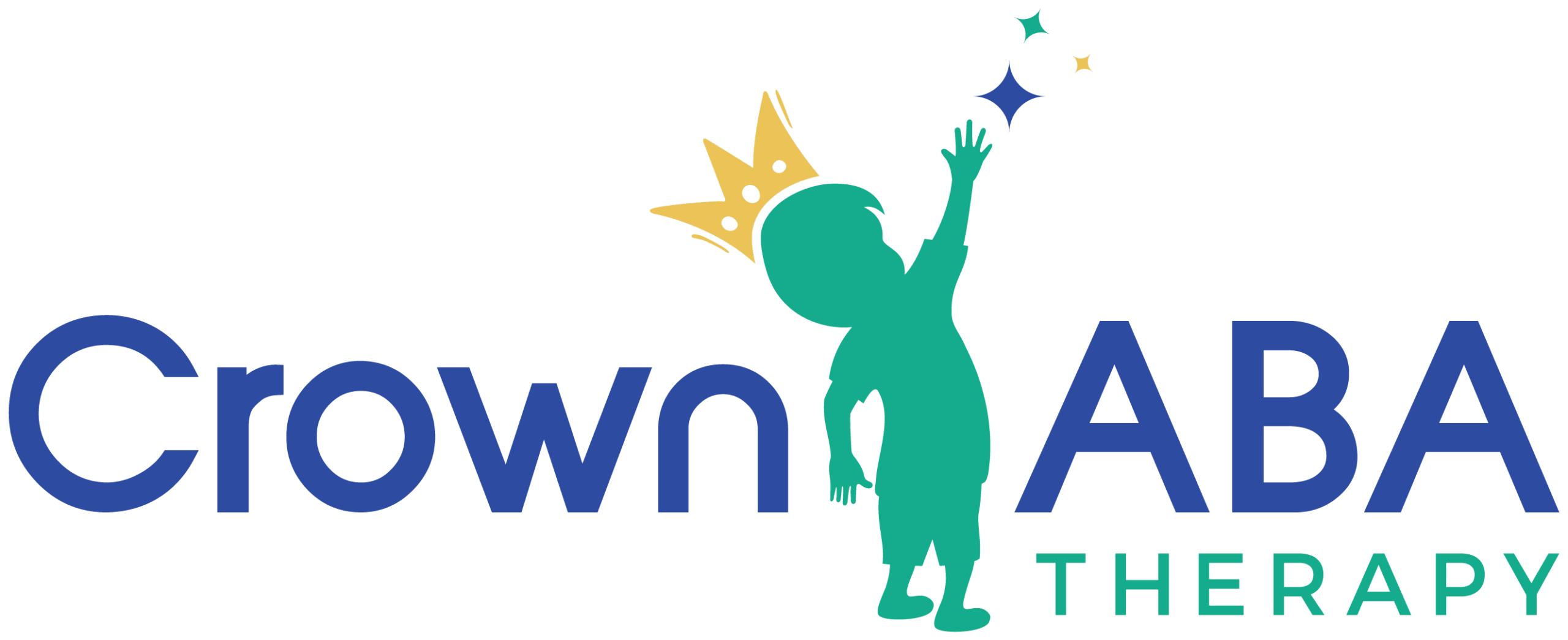When a child is diagnosed with autism, families often find themselves in a whirlwind of recommendations, assessments, and services. Applied Behavior Analysis (ABA) therapy is frequently presented as the gold standard for autism treatment—but not all ABA is created equal. The difference between a child thriving versus simply participating in therapy often comes down to two things: ethics and outcomes.
These two pillars aren’t separate. In fact, they’re deeply connected. Ethical practice in ABA ensures that every decision made on behalf of the child is in their best interest. High-quality outcomes are the natural result of that ethical groundwork. In Maryland, where the ABA landscape is growing rapidly, families need to know how to evaluate both.
Let’s take a closer look at what it really means to hold the standard in ABA—and how families can make sure they’re choosing providers who do just that.
 Ethics in Practice: What It Looks Like Day-to-Day
Ethics in Practice: What It Looks Like Day-to-Day
Ethics in ABA therapy isn’t only about avoiding wrongdoing—it’s about doing what’s right, even when it’s more complicated or time-consuming.
It means making sure a child’s goals are chosen with the family, not for them. It means that behavior plans are not copy-pasted from one client to the next. And it means ensuring that the therapist working with your child is supervised regularly and given clear feedback.
The Behavior Analyst Certification Board (BACB) offers a Code of Ethics that sets the groundwork, but a truly ethical ABA provider goes beyond compliance. Some examples of this include:
- Informed consent that’s actually informative. Families should understand not just what services are being provided, but why. Consent is an ongoing conversation, not a signature on a form.
- Respecting the child’s dignity. This includes using least-restrictive interventions, offering choices, and responding to behavior with compassion rather than control.
- Honest conversations about progress. Ethical providers don’t sugarcoat data. If a skill isn’t developing as expected, it’s discussed—and the team problem-solves.
- Avoiding conflicts of interest. Recommendations for services or therapy hours should always be based on the child’s needs, not on billing potential or staffing limitations.
In real terms, this might mean a BCBA reducing a child’s therapy hours when they no longer need 25 per week—or declining to take on a client if their needs fall outside of the provider’s expertise. That’s ethics in action.
Outcomes That Matter: Moving Beyond Surface-Level Data
Families often ask, “Is ABA working?” The answer lies in the outcomes—but not just the ones written in the insurance report.
Good ABA doesn’t just reduce problem behavior. It builds meaningful, functional skills that help children participate more fully in their homes, schools, and communities. That means outcomes should look like:
- A child learning to ask for help instead of melting down.
- A teen with autism learning job skills that build independence.
- A preschooler gaining the communication skills needed to engage with peers.
What matters most is that outcomes are individualized. ABA should not look the same for every child, even if they have the same diagnosis. Providers who prioritize quality over quantity will measure progress in ways that are both clinically sound and personally relevant.
Data should be more than numbers on a spreadsheet. It should tell the story of growth—and guide the next steps in treatment.
 How Ethical Practices Drive Meaningful Outcomes
How Ethical Practices Drive Meaningful Outcomes
Ethics and outcomes aren’t two separate goals. They are directly linked. When a provider makes ethical decisions consistently, better outcomes follow.
Here’s how that connection plays out in practice:
1. Child-Centered Goal Selection
Ethical BCBAs ensure that therapy goals reflect the child’s needs and family’s values—not just developmental checklists. For example, teaching a child to say “bathroom” because they’re ready for potty training—not because it’s on a pre-set curriculum.
2. Adjustments Based on Progress
Ethical providers modify therapy when something isn’t working. If a skill hasn’t progressed in three months, the BCBA reevaluates the teaching strategy, rather than continuing just to meet data quotas.
3. Ongoing Caregiver Collaboration
When families are treated as essential partners, generalization happens more naturally. Parents who understand the “why” behind the strategies are more likely to use them in daily life. This leads to quicker, more durable gains.
4. Thorough Supervision of Staff
The competence of the therapist working directly with the child often determines session quality. Ethical organizations prioritize training, oversight, and support—because great outcomes come from well-supported therapists.
What to Look For: Choosing an ABA Provider That Prioritizes Ethics and Outcomes
With many providers offering ABA therapy in Maryland, how can families know they’re choosing one that holds the standard? The answer lies in asking the right questions—and paying attention to how providers respond.
Here are five non-negotiables to look for:
1. Transparent Communication
Ethical providers will walk you through the assessment process, explain data collection, and regularly update you on progress. If something isn’t going well, they’ll tell you—honestly.
2. Individualized Programming
Watch out for programs that look the same for every child. A strong provider will show you how your child’s program is tailored specifically to their current skills, goals, and learning style.
3. BCBA Oversight and Accessibility
Your child’s behavior analyst should be regularly involved—not just checking in once a month. Ask how often they observe sessions and how you can reach them with concerns.
4. Focus on Functional Skills
Is your child being taught skills they’ll actually use in real life? Communication, daily living, and social skills should take center stage.
5. Commitment to Ethical Staffing Practices
High staff turnover often signals deeper issues. Ask about how the company supports its RBTs, including training, supervision, and career development. Happy, well-trained therapists lead to better sessions for your child.
 Clinician Perspective: How BCBAs Can Uphold Ethics and Improve Outcomes
Clinician Perspective: How BCBAs Can Uphold Ethics and Improve Outcomes
For clinicians in the ABA field, the pressure to juggle caseloads, manage staff, and hit deadlines can be intense. But holding the ethical line is non-negotiable. Here’s how behavior analysts can lead with integrity and still support effective care.
1. Prioritize Supervision Quality
Don’t just meet the BACB minimum—go beyond it. Regular observations, modeling, and feedback aren’t luxuries; they’re necessities for effective treatment.
2. Advocate for Clinical Judgment
Push back (respectfully) when insurance constraints or administrative policies conflict with your clinical recommendations. Data-backed advocacy matters.
3. Collaborate With Families, Not Over Them
ABA is most effective when it feels like a partnership. Invite parents to help shape goals, track progress, and problem-solve.
4. Avoid Data-Driven Tunnel Vision
Numbers matter, but they don’t always tell the full story. Look at the context behind the data: Why did a behavior spike? Was a new medication introduced? Is there something going on at home?
5. Model Ethical Leadership
Whether you’re a clinical director or a newly certified BCBA, others are watching how you make decisions. Ethical culture starts at the top but is carried out in daily moments.
Holding the Standard Across Maryland
ABA therapy is more than a service. For families of children with autism, it can be a lifeline—but only when done well. Ethics and outcomes are not buzzwords. They’re the difference between therapy that changes lives and therapy that checks boxes.
If you’re a parent looking for ABA therapy in Maryland, you deserve providers who uphold ethical care and focus on real, lasting outcomes.
Crown ABA is one of the providers committed to that standard. Our team offers compassionate, evidence-based ABA therapy in Maryland—focused on collaboration, integrity, and growth.
If you’re a clinician who’s ready to work in an environment where ethical decisions are backed, outcomes are celebrated, and supervision is meaningful, Crown ABA is actively hiring BCBAs and RBTs across Maryland.
Let’s raise the bar—because our kids deserve nothing less.




